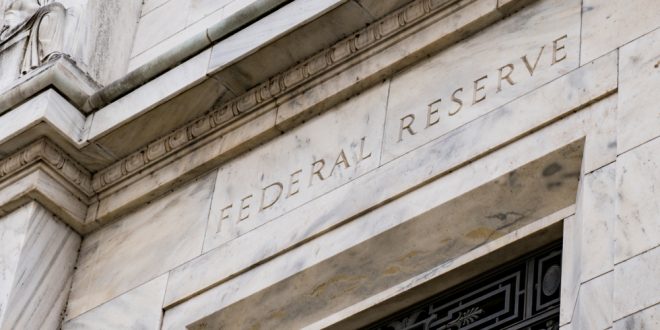The Chairman of the United States Federal Reserve, Jerome Powell, said that the U.S. economy is in a stage that he described as an inflection point, promising improved economic growth and job creation.
“What we’re seeing now is really an economy that seems to be much at an inflection point. And that’s because of widespread vaccination and strong fiscal support, strong monetary policy support. We feel like we are at a place where the economy is about to start growing much more quickly and job creation coming in much more quickly. The outlook has brightened substantially.”
When asked if he is expecting a boon and not just recovery, Powell said: “Well, I would say that this growth that we’re expecting in the second half of this year is going to be very strong.”
The Fed Chair continued to link the recovery to the state of the coronavirus pandemic, calling for sticking to preventive measures to ensure recovery.
“The principal risk to our economy right now really is that the disease would spread again. It’s going to be smart if people can continue to socially distance and wear masks.”
He went on to explain the huge uncertainty created by the pandemic, saying “we did not know how the economy would perform. We did not know the path of the disease. We had no idea when and how long it would take to do a vaccine.”
Powell further noted that the chances of an economic crash similar to the 2008 global financial crisis are very low.
The Fed Chair indicated that there is another risk to the economy resulting from cyber attacks.
“We spend so much time and energy and money guarding against these things. There are cyber-attacks every day on all major institutions now. That’s a big part of the threat picture in today’s world.”
Powell believes that a surge in inflation during summer would be temporary, stressing the patience that the Fed will adopt in the monetary policy stance in dealing with consumer prices.
“That means that we can afford to wait to see actual inflation appear before we raise interest rates.”
“We do have the ability to wait to see real inflation, and that’s what we plan on doing,” he said, reiterating plans not to raise interest rates until inflation maintains the 2% strategic target.
Moreover, Powell said that the Fed is closely monitoring the crisis of the New York-based fund Archegos Capital, analyzing the losses that it has caused to some of the leading banks in billions of dollars.
However, he played down the risks this imposed on the broader financial and banking system, during his interview with 60 Minutes, the most famous news show that airs on CBC on Sundays.
It is worth noting that Credit Suisse and Nomura have reportedly lost $4.7 billion and $2 billion, respectively, due to exiting positions with the fund, which Powell described as concerning.
“This is an event that we’re monitoring very carefully and working with regulators here and around the world to understand carefully.”
“We’re going to understand that and get to the bottom of it. What we try to do is make sure that the banks understand the risks that they are running and have systems in place to manage them. This would appear to be a significant shortfall – a failure on that front.”
 Noor Trends News, Technical Analysis, Educational Tools and Recommendations
Noor Trends News, Technical Analysis, Educational Tools and Recommendations





